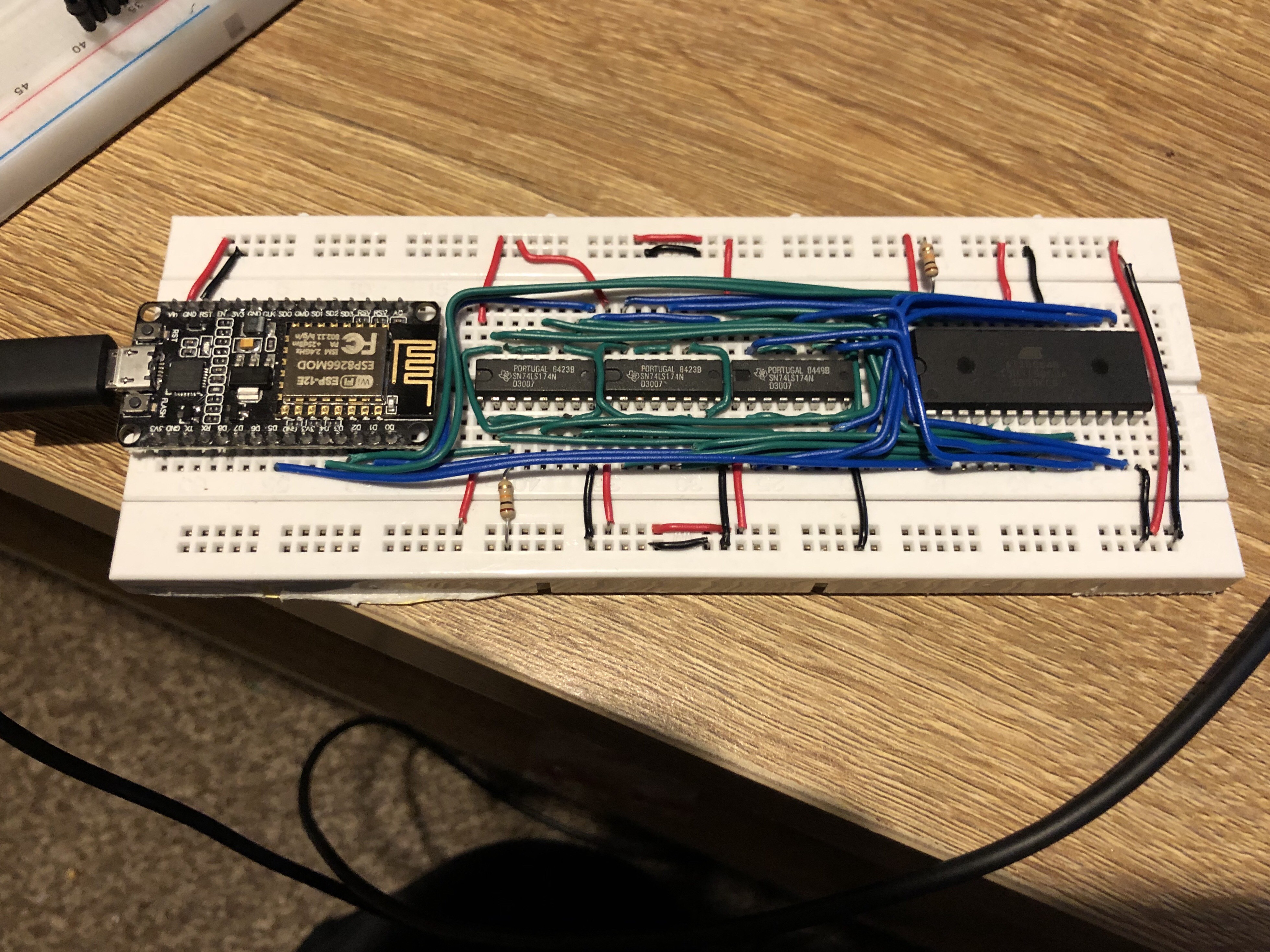I know I literally just said that the next log would be about the address decoder, but then I remembered I've been meaning to write a quick log about the EEPROM programmer I hacked together for the m68k project, so here's that instead.
(TL;DR - It's on Github: https://github.com/roscopeco/eeprom-programmer)
Once the address decoder is built, I'm obviously going to need to program the EEPROMS for the m68k build. I could go the easy route and just buy one, but I decided I had enough stuff lying around that I should be able to hack one together. It turns out I did, but I had to make some, ahem, compromises to make it work.
Quoted from the README on Github:
This project uses an ESP8266 dev board (NodeMCU 1.0) along with three 74LS174 hex D-flip flops to program the 64 Kbit EEPROMs I'm using in my m68k breadboard computer. The choice of components may seem a bit odd - the design was driven entirely by what I had available on the bench at the time, and my being too impatient to wait for a ten-quid programmer to arrive in the post. So I just hacked this together quickly to tide me over.
So basically I just built a shift register driven by the NodeMCU and then used some of the spare GPIOs to drive the W/E line on the ROM. Obviously I could have used shift registers instead of the flip-flops, but I didn't have any.
I'll say no more about it here, it's well documented on Github and the code is there too. So I'll just post a picture of it and move on to address decoding (for real, this time).

 Ross Bamford
Ross Bamford
Discussions
Become a Hackaday.io Member
Create an account to leave a comment. Already have an account? Log In.
👍 Using a MCU to drive a target chip is a good way to learn the specs of that chip. I've been testing some old pulled Dallas Semi RTCs with an Uno. Surprisingly the lithium cell in some seem to be viable after a couple of decades.
Are you sure? yes | no
Thanks for the comment Ken! I've found that too, it makes it really easy to find out what does (and doesn't) work for a given chip.
Awesome that those lithium cells are still viable, were the devices in use over those decades or sitting idle?
Are you sure? yes | no
Sitting in my junk box which is probably why they didn't drain.
Are you sure? yes | no